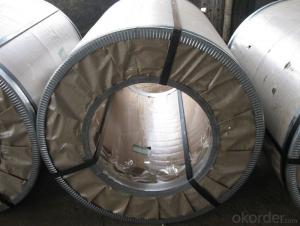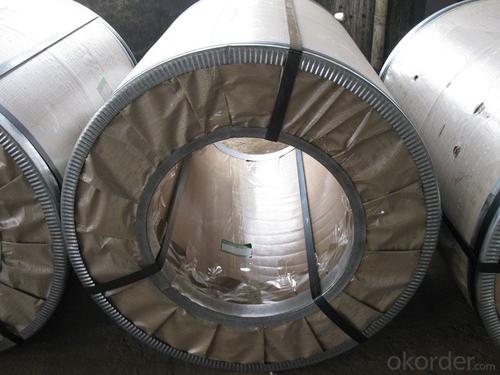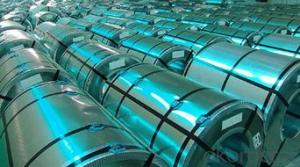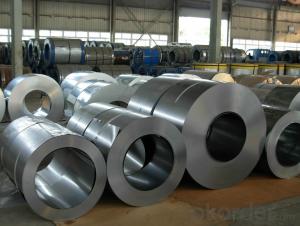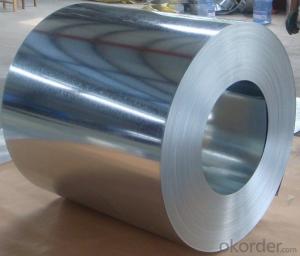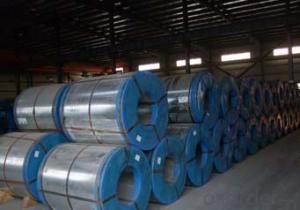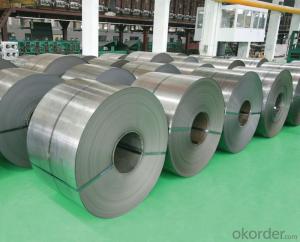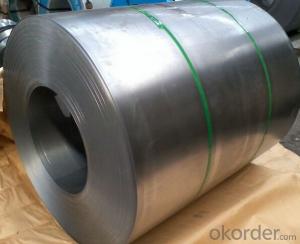Chinese Best Cold Rolled Steel Coil --Q195~Q345
- Loading Port:
- China main port
- Payment Terms:
- TT OR LC
- Min Order Qty:
- 50 m.t.
- Supply Capability:
- 10000 m.t./month
OKorder Service Pledge
OKorder Financial Service
You Might Also Like
Chinese Best Cold Rolled Steel Coil --Q195~Q345
1.Structure of Cold Rolled Steel Q195~Q345 Description:
The raw material of cold rolled steel coil/sheet is high quality hot rolled product, and after pickling continuous rolling, degreasing, annealing,skin pass,slitting and cut to length line etc. Along with it many kinds of new technology and new process of global cold rolling production have been applied.
2.Main Features of Cold Rolled Steel Coil --Q195~Q345:
• Excellent process capability
• Smooth and flat surface
• Excellent heat resistance performance
3. Cold Rolled Steel Q195~Q345 Images:
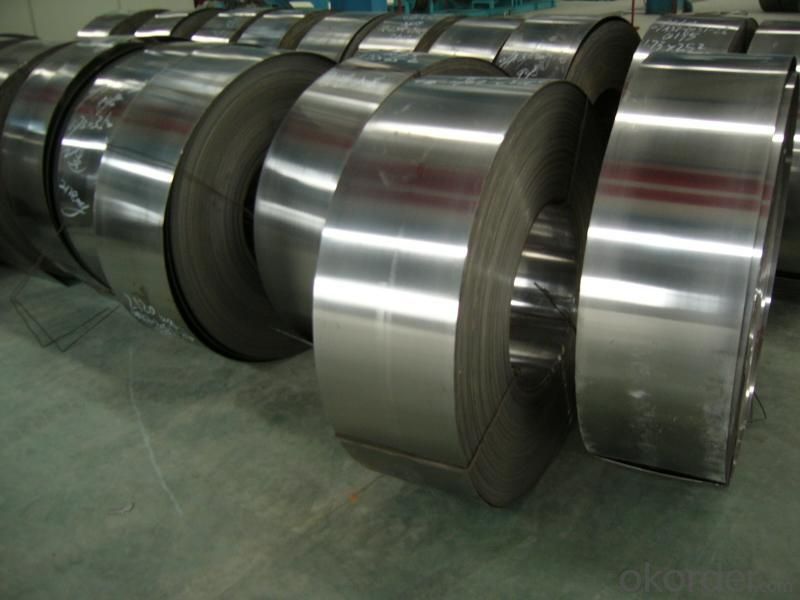
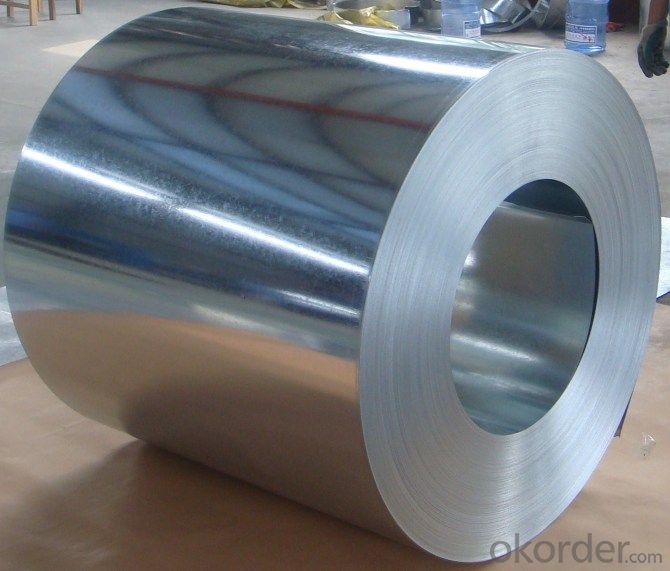
4.Cold Rolled Steel Q195~Q345 Specification:
Standard:AISI,ASTM,DIN,GB,JIS,JIS G3302 ASTM 653M EN10142
Grade: Q195~Q345
Thickness: 0.16mm~2.0mm
Width: 1250mm MAX
Coil weight:3-12 MT
FAQ
1.How to guarantee the quality of the products?
We have established the international advanced quality management system,every link from raw material to final product we have strict quality test.
2. How long can we receive the product after purchase?
Usually within thirty working days after receiving buyer’s advance payment or LC. We will arrange the factory manufacturing as soon as possible. The cargo readiness usually takes 15-25 days, but the shipment will depend on the vessel situation.
- Q: What are the different types of steel coil packaging materials used during processing?
- Some of the different types of steel coil packaging materials used during processing include steel strapping, plastic strapping, stretch film, shrink wrap, and coil covers.
- Q: I've created something but it's a huge secret. Anyways I need to know everything and anything about steel. Like the iron steel. ANYTHING AND EVERYTHING. Best answer goes to the person with the most correct information. Please this is really important.
- If you want to know everything about steel, there's no way you're going to get an answer on Yahoo that is comprehensive enough. What you want to do is get some books on steel metallurgy, engineering properties of materials, and maybe machine design depending on your application. Topics will include molecular structure, material properties, alloying, stress and strain, work hardening, creep, computing damage and lifetime cycles, corrosion, toughness vs hardness, heat treating, and a ton of others. If you want to sharpen steel, that is a whole topic in itself concerning different blade profiles and their sharpness, edge holding, ease of sharpening, type of grind etc.
- Q: I went to the store to get metal to make a knife and they had weldable steel and plate steel. Which one would be best/ which steels would be best for what i want to do?
- 'Plate' does not refer to a specific alloy. It simply describes the shape in which the metal is sold. Various steel alloys have varying degrees of weldability. Some weld well, with good strength. Others weld poorly, and crack or become very weak. Try looking up information on the specific alloy of steel.
- Q: What is steel made of? What are the elements other than iron?
- iron (Fe) and carbon (C). Carbon is in small proportion, from 0.1% to 1.7% or so. If you go over 1.7% carbon by weight you get cast iron, which is much less hard than steel.
- Q: Is 440 steel relatively strong or weak?
- Its strong steel is rated by the precence of carbon in it. Higher carbon _ higher the price
- Q: How do steel coils impact the overall cost of production?
- The overall cost of production in various industries is greatly affected by steel coils. Initially, the expense of the steel coils themselves can be quite significant. The price of steel is influenced by several factors, including supply and demand, raw material costs, and market fluctuations. Any increase in the price of steel coils can directly impact the overall cost of production, as they are a major component in the manufacturing process. Furthermore, the operational costs of production are also influenced by steel coils. These coils are commonly used in different manufacturing processes, such as stamping, rolling, and forming, which require specialized machinery. The efficiency and effectiveness of these processes greatly depend on the durability, quality, and size of the steel coils. If the coils are of low quality or not suitable for the specific production requirements, it can result in increased downtime, machinery maintenance, and rework, all contributing to higher production costs. Additionally, the transportation costs associated with steel coils can impact the overall cost of production. Steel coils are typically heavy and bulky, requiring special handling and transportation arrangements. The logistics costs can be significantly influenced by factors such as the distance between the supplier and the production facility, as well as the chosen mode of transportation. Any rise in transportation expenses, such as fuel prices or shipping fees, can directly affect the overall cost of production. Lastly, the availability of steel coils can also impact production costs. During periods of high demand or limited supply, the price of steel coils may increase, resulting in higher production costs. Moreover, if there is a shortage of steel coils due to trade restrictions or disruptions in the supply chain, manufacturers may have to resort to alternative materials or sources, which could be more expensive or of lower quality. These factors can have a ripple effect on the overall cost of production. In conclusion, steel coils have a significant impact on the overall cost of production. Their cost, quality, transportation, and availability all influence the efficiency, effectiveness, and affordability of the manufacturing process. Therefore, manufacturers must carefully consider and manage these factors to optimize their production costs and maintain competitiveness in their respective industries.
- Q: How are steel coils protected from extreme weather conditions?
- Steel coils are typically protected from extreme weather conditions using various methods such as covering them with waterproof wraps, storing them in climate-controlled warehouses, or applying anti-corrosion coatings. These measures ensure that the coils are shielded from moisture, temperature fluctuations, and other environmental factors that could potentially damage or degrade the steel.
- Q: Can steel coils be coated with abrasion-resistant materials?
- Yes, steel coils can be coated with abrasion-resistant materials. These materials are applied to the surface of the steel coils to provide added protection against wear and tear caused by friction and other abrasive forces. This coating helps prolong the lifespan of the steel coils and maintain their performance in various applications.
- Q: How are steel coils inspected for elongation?
- Steel coils are inspected for elongation using a variety of methods. One common method is the use of a tensile testing machine. In this method, a small sample is taken from the steel coil and placed into the machine. The machine then applies a pulling force to the sample until it breaks. The amount of force required to break the sample is measured, and this information is used to determine the elongation of the steel coil. Another method used to inspect steel coils for elongation is the use of ultrasonic testing. In this method, high-frequency sound waves are passed through the steel coil. By analyzing the reflection of these sound waves, it is possible to determine the elongation and other properties of the steel coil. Visual inspection is also an important aspect of inspecting steel coils for elongation. Trained technicians visually inspect the steel coils for any signs of stretching or deformation that may indicate excessive elongation. Overall, a combination of mechanical testing, ultrasonic testing, and visual inspection is used to thoroughly inspect steel coils for elongation and ensure their quality and compliance with industry standards.
- Q: How are steel coils used in the production of structural steel?
- Steel coils are used in the production of structural steel by being unwound and processed through various manufacturing techniques, such as rolling and shaping, to create different structural components like beams, columns, and plates.
Send your message to us
Chinese Best Cold Rolled Steel Coil --Q195~Q345
- Loading Port:
- China main port
- Payment Terms:
- TT OR LC
- Min Order Qty:
- 50 m.t.
- Supply Capability:
- 10000 m.t./month
OKorder Service Pledge
OKorder Financial Service
Similar products
Hot products
Hot Searches
Related keywords
